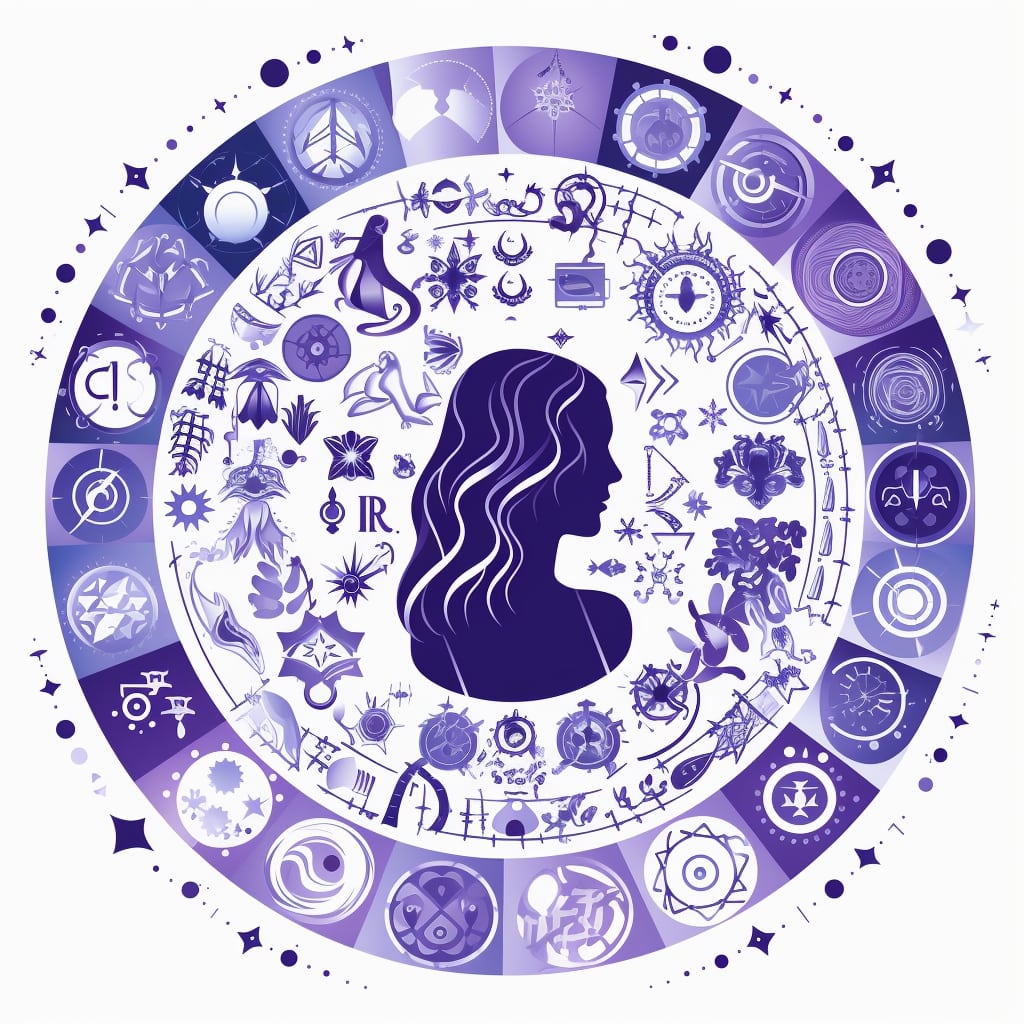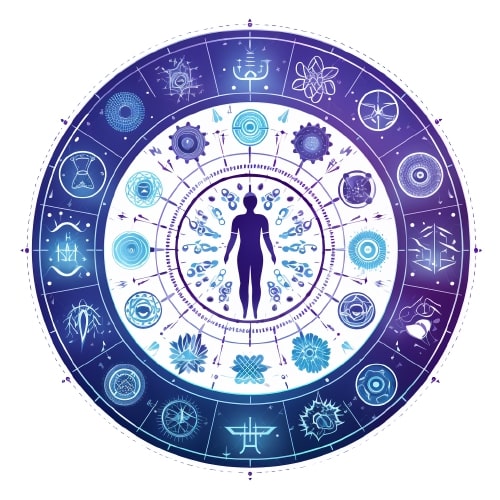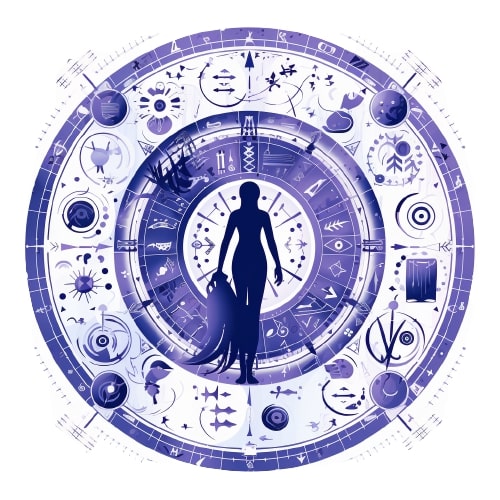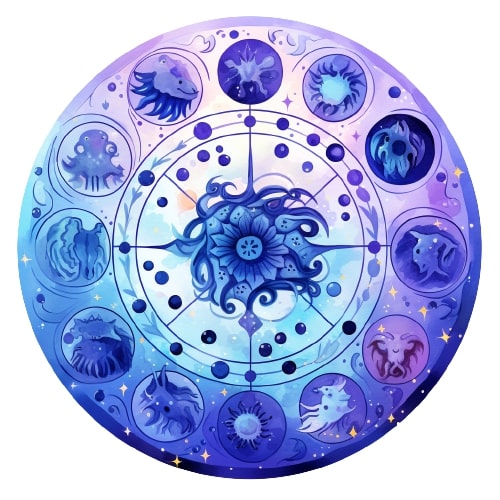
Welcome to our comprehensive exploration of Cancer Facts. In this article, we will take a deep dive into the intricate workings of cancer cells, the different types and stages of Cancer, and the emotional realities of living with this disease. Moreover, we will explore the Cancer journey through the lens of the Moon’s Child, gaining insights into the profound experiences that come with Cancer.
Key Takeaways
- Understanding Cancer is crucial for effectively navigating the disease.
- The emotional impact of Cancer is significant for patients and their loved ones.
- Preventive measures and lifestyle choices can help reduce the risk of developing Cancer.
- There are various approaches to Cancer treatment, including surgery, radiation, chemotherapy, and immunotherapy.
- Support systems are essential in providing comfort, guidance, and strength during the Cancer journey.
Understanding Cancer: A Comprehensive Overview
Cancer is a complex and multifaceted disease that affects millions of people worldwide. It is characterized by the uncontrolled growth and spread of abnormal cells in the body, which can lead to a range of physical and emotional symptoms.
There are many types of Cancer, each with their own unique characteristics and treatment options. Some of the most common types include breast Cancer, lung Cancer, prostate Cancer, and colorectal Cancer.
While Cancer can affect anyone, there are certain risk factors that can increase your chances of developing the disease. These include age, family history, exposure to certain chemicals and toxins, and unhealthy lifestyle choices like smoking and excessive alcohol consumption.
Diagnosis of Cancer typically involves a series of tests and procedures, including imaging tests, blood tests, and biopsies. Once Cancer is diagnosed, the stage of the disease and the type of Cancer will determine the most appropriate treatment options.
Common Cancer treatments include surgery, chemotherapy, radiation therapy, and immunotherapy. Each of these treatments has its own unique benefits and risks, and the best course of action will depend on a patient’s individual circumstances and medical history.
While Cancer can be a daunting and overwhelming experience, it is important to remember that there are many resources and support systems available to patients and their families. From support groups and counseling to alternative therapies and complementary treatments, there are many ways to manage the physical and emotional challenges of living with Cancer.
A comprehensive understanding of Cancer and the various treatment options available can help patients and their loved ones make informed decisions about their care and treatment. By staying informed and engaged in the Cancer journey, patients can take an active role in their own care and work towards the best possible outcomes.
Emotional Impact: Navigating the Rollercoaster of Cancer
Living with Cancer is an emotional journey that can take a significant toll on patients and their loved ones. The psychological impact of the disease can be overwhelming, ranging from fear and anxiety to depression and stress. Patients may experience a wide range of emotions at different stages of their Cancer journey, and it is essential to navigate these emotions with care.
The emotional impact of Cancer can be particularly challenging for the Moon’s Child, whose strong emotions and sensitivity can be amplified by the disease. They may experience intense feelings of sadness, despair, and hopelessness, and struggle to cope with the physical and emotional demands of treatment.
However, effective communication, emotional support, and counseling can help patients navigate the emotional rollercoaster of Cancer. Support from family and loved ones, as well as participation in Cancer support groups, can help patients share their experiences and connect with others who are going through similar challenges.
Patients are also encouraged to seek professional help from mental health practitioners who specialize in Cancer. They can help patients manage their emotions, develop coping strategies, and improve their overall quality of life. For the Moon’s Child, this is particularly important, as they may benefit from therapies such as art therapy, music therapy, or mindfulness meditation, which can help them express their emotions more effectively.
In summary, the emotional impact of Cancer is significant, and navigating the rollercoaster of emotions requires patience, care, and support. By recognizing the emotional depth of the Moon’s Child and providing them with the necessary tools to manage their feelings, patients can feel more empowered and better equipped to face the challenges of living with Cancer.
Cancer Prevention: Empowering Choices for a Healthier Future
Cancer prevention is about making choices that can help reduce the risk of developing cancer. Although not all cancers can be prevented, there are empowering lifestyle changes you can make to help reduce your risk of developing this disease.
One of the most important steps you can take is to maintain a healthy weight. Obesity has been linked to several types of cancer, including breast, colon, and pancreatic cancer. Eating a balanced diet rich in fruits, vegetables, and whole grains can help with weight management and provide essential nutrients that help protect against cancer.
Physical activity is another crucial aspect of cancer prevention. Regular exercise can help reduce your risk of developing several types of cancer, including breast, colon, and lung cancer. Aim for at least 30 minutes of moderate physical activity on most days of the week.
Smoking is a leading cause of cancer, and quitting smoking is one of the most effective ways to reduce your risk. If you don’t smoke, avoid exposure to secondhand smoke, which has been shown to increase the risk of lung cancer.
Protecting your skin from the harmful effects of the sun can help reduce your risk of developing skin cancer. Use sunscreen with a sun protection factor (SPF) of 30 or higher, wear protective clothing, and avoid outdoor activities during peak sun hours.
Regular cancer screenings are essential for early detection and treatment. Talk to your healthcare provider about the recommended cancer screenings for your age, gender, and family history. Early detection can greatly improve the chances of successful treatment.
Incorporating these cancer prevention strategies into your daily routine can help reduce your risk of developing cancer and empower you to lead a healthier life.
Treatment Options: A Roadmap to Healing
When it comes to treating Cancer, there is no one-size-fits-all approach. The treatment plan depends on various factors such as the type and stage of Cancer, overall health, and personal preferences. Let’s take a closer look at the different Treatment Options that offer a roadmap to healing:
Surgery
Surgery is a common Treatment Option for Cancer patients. It involves removing Cancerous cells or tumors from the body to prevent them from spreading to other areas. Depending on the location and size of the Cancer, surgery can be performed using traditional methods or minimally invasive techniques.
Radiation Therapy
Radiation Therapy uses high-energy radiation beams to kill Cancer cells. It is often used to treat localized tumors and can be administered externally or internally.
Chemotherapy
Chemotherapy is a systemic Treatment Option that involves using drugs to kill Cancer cells throughout the body. It is often used in combination with other Treatment Options to enhance effectiveness.
Immunotherapy
Immunotherapy is a rapidly advancing Treatment Option that works by boosting the body’s immune system to fight Cancer. It involves using drugs that either enhance the immune system’s response to Cancer cells or target specific Cancer cells.
Each Treatment Option comes with its own set of potential side effects and drawbacks. It is crucial to discuss options with the medical team to determine the best course of action for each individual patient.
Support Systems: Finding Solace and Strength
Living with Cancer can be an emotional and challenging experience for patients and their loved ones. The journey may be filled with uncertainty, fear, and stress, often requiring support and guidance. This is where support systems come in, providing solace and strength throughout the Cancer journey.
Families and friends play a vital role in creating a supportive environment for Cancer patients. Simply being present and offering a listening ear or a shoulder to lean on can make a significant difference in their emotional well-being. Caregivers and loved ones can also offer practical help such as transportation to appointments or assistance with household tasks.
Support groups are another resource for Cancer patients, where they can connect with individuals who understand their experiences and offer empathy, advice, and encouragement. There are also specialized support groups for specific Cancer types or stages, providing a more tailored experience.
Healthcare professionals are also a crucial part of the support system for Cancer patients. From oncologists to nurses to social workers, they are trained to provide comprehensive care to help patients cope with the physical and emotional challenges of Cancer. Mental healthcare professionals, such as psychologists and counselors, can also provide valuable support to address anxiety, depression, and other psychological issues associated with Cancer.
It’s essential to recognize that support systems may look different for each person. Some may find solace in religious or spiritual practices, while others may prefer art, music, or exercise as a way to cope. Whatever the case may be, finding the right support system can be a critical factor in facilitating emotional healing and building resilience.
Cancer Research: Advancements and Breakthroughs
Cancer research continues to make significant strides in understanding the disease and developing new treatment options. Advancements in technology and medicine have led to groundbreaking breakthroughs, giving patients new hope and improving their chances of survival.
One area of significant progress is in the field of immunotherapy, a type of cancer treatment that helps the body’s immune system fight cancer cells. This approach has shown promising results in treating various cancers, including melanoma, lung, and bladder cancer.
Another exciting development is the use of precision medicine, which involves tailoring treatment based on a patient’s unique genetic makeup. By identifying specific genetic mutations in tumors, doctors can develop personalized treatment plans that target the cancer cells more effectively.
Researchers are also exploring innovative approaches such as gene therapy, where genes are modified or replaced to treat or prevent diseases. This method is being tested for the treatment of several types of cancer, including leukemia and lymphoma.
Breakthroughs in cancer research are not limited to treatment options alone. Advances in diagnostic technology have also made it possible to detect cancer earlier and with greater accuracy. For instance, liquid biopsies are now being used to detect cancer by analyzing small fragments of DNA in the blood.
As research continues, there is hope for even more breakthroughs in the fight against cancer. By staying vigilant and supporting ongoing research efforts, we can work towards a future where cancer is no longer a life-threatening disease.
Life After Cancer: Nurturing Hope and Recovery
Surviving Cancer is a life-changing experience that can leave lasting effects on the mind and body. For many survivors, the end of treatment can bring feelings of uncertainty, fear, and anxiety, making it challenging to adjust to a new norm. That’s why nurturing hope and recovery in the post-treatment phase is crucial to achieving a sense of normalcy.
One of the first steps in recovering from Cancer is focusing on physical health. Survivors should work with their healthcare team to establish a plan for follow-up care, including regular check-ups and screenings. Adopting healthy lifestyle habits such as incorporating physical activity, eating a balanced diet, and avoiding tobacco and excessive alcohol can also help prevent the development of other health issues.
| Tip: | Yoga and meditation can also support physical health by reducing stress, anxiety, and fatigue. |
|---|
Emotional wellbeing is also crucial for life after Cancer. Many survivors experience a range of emotions, including fear of recurrence, anxiety, and depression. It’s essential to seek out support from loved ones or a mental healthcare professional to address these feelings and work towards a sense of emotional balance.
Additionally, finding ways to give back to the Cancer community can be a powerful way to nurture hope and meaning. Survivors can connect with advocacy organizations, participate in fundraising events, or volunteer to help others going through Cancer treatment.
Though the journey beyond Cancer can be challenging, it’s also an opportunity to find new meaning in life and embrace a sense of gratitude. By prioritizing physical and emotional wellbeing and finding ways to give back, survivors can nurture hope and foster a fulfilling life after Cancer.
Cancer and Mental Health: Addressing the Invisible Battle
Living with Cancer takes a toll not only on the body but also on the mind. The emotional strain of coping with diagnosis, treatment, and recovery can lead to various mental health challenges. Unfortunately, these challenges often go unnoticed or unaddressed, resulting in an invisible battle that patients and their loved ones have to fight.
Studies have shown that Cancer patients are at a higher risk of developing anxiety and depression. The uncertainty about the future, fear of death, and physical changes caused by treatment can trigger these conditions. Additionally, Cancer treatments, such as chemotherapy, can cause cognitive changes that affect memory, attention, and decision-making. These side effects can make it challenging to cope with daily life, resulting in further emotional distress.
It is crucial to address the mental health aspects of Cancer care through a holistic approach. Patients and their families need access to mental health professionals who can address their emotional needs and provide support. Psychotherapy, cognitive-behavioral therapy, and medication can significantly improve the emotional well-being of Cancer patients.
Moreover, fostering a supportive environment that encourages communication and openness can also help patients cope with the invisible battle. Loved ones can play a vital role in providing emotional support, validation, and validation of the patient’s struggles. Listening and offering a non-judgmental and compassionate ear can significantly alleviate emotional distress.
Cancer patients should never feel alone in their invisible battle against mental health challenges. By addressing the emotional realities of Cancer, we can provide holistic care that prioritizes the physical and emotional well-being of patients and their loved ones.
Cancer Advocacy: Making a Difference
Cancer advocacy has become a vital movement in recent years, driving awareness, support, and policy changes to address the impact of Cancer on individuals, families, and society at large. Advocacy groups, patient advocates, and healthcare professionals are working tirelessly to make a difference in the Cancer landscape.
The advocacy efforts have taken many forms, ranging from educational campaigns and fundraising initiatives to lobbying for legislative changes and policy reforms. These efforts aim to promote Cancer prevention, improve access to quality care, advance scientific research, and support patients and survivors in their journey of healing and recovery.
By bringing together individuals and organizations with diverse perspectives, experiences, and expertise, the Cancer advocacy movement is driving meaningful change and making a difference in countless lives. Whether it is through volunteering, fundraising, or raising awareness, everyone can play a role in supporting the Cancer advocacy cause.
Together, we can create a world where Cancer is no longer a source of fear and suffering but a treatable and manageable disease. Join the Cancer advocacy movement today, and let us make a difference together!
Conclusion
As we conclude our exploration of Cancer Facts and the emotional journey of the Moon’s Child, we are reminded of the importance of knowledge, empathy, support, and hope in facing the challenges of living with Cancer.
Empathy and Support
Living with Cancer can be an isolating experience. It is essential to offer empathy and support to those affected by this disease. Whether it be through providing a listening ear or accompanying a loved one to appointments, small actions can make a significant impact on someone’s Cancer journey.
Knowledge and Hope
Knowledge is power, and a comprehensive understanding of Cancer can help alleviate some of the fear and anxiety associated with the disease. By staying informed of the latest advancements in Cancer research and treatment options, individuals can foster a sense of hope and agency in facing this difficult journey.
Advocacy for Change
Finally, Cancer advocacy plays a crucial role in improving the Cancer landscape globally. By supporting organizations that raise awareness, support patients, and drive policy changes, individuals can make a meaningful difference in the fight against this disease.
Together, we can work towards a future where Cancer no longer holds the power to instill fear and uncertainty, but rather one where knowledge, empathy, support, and hope prevail.
FAQ
Q: What are the common types of Cancer?
A: The most common types of Cancer include breast, lung, prostate, colorectal, and skin Cancer.
Q: What are the risk factors for Cancer?
A: Risk factors for Cancer include tobacco use, exposure to harmful chemicals or radiation, family history of Cancer, unhealthy lifestyle choices, and certain infections like HPV and hepatitis.
Q: How can I reduce my risk of developing Cancer?
A: You can reduce your risk of developing Cancer by adopting a healthy lifestyle that includes regular exercise, maintaining a healthy weight, eating a balanced diet rich in fruits and vegetables, avoiding tobacco and excessive alcohol consumption, and getting regular screenings and vaccinations.
Q: What are the treatment options for Cancer?
A: Treatment options for Cancer depend on the type and stage of the disease but may include surgery, radiation therapy, chemotherapy, immunotherapy, targeted therapy, and hormone therapy.
Q: How can I support a loved one with Cancer?
A: You can support a loved one with Cancer by offering emotional support, being present, listening without judgment, helping with practical tasks, and encouraging them to seek professional support and join support groups.
Q: Is Cancer hereditary?
A: Some types of Cancer have a hereditary component, meaning they can be passed down through families due to genetic mutations. However, many cases of Cancer are not hereditary and are caused by a combination of lifestyle and environmental factors.
Q: What are the emotional challenges of living with Cancer?
A: Living with Cancer can bring about a range of emotional challenges such as fear, anxiety, sadness, anger, and uncertainty. It is important to seek emotional support and engage in self-care activities to navigate these challenges.
Q: Are there any breakthroughs in Cancer research?
A: Yes, ongoing Cancer research has led to significant breakthroughs in treatment options and improved outcomes for patients. Scientists are constantly working to develop new therapies and enhance our understanding of the disease.
Q: How can I get involved in Cancer advocacy?
A: You can get involved in Cancer advocacy by supporting organizations working in the field, raising awareness through fundraising events, participating in walks or runs, or advocating for policies that promote Cancer prevention, treatment, and support.
Q: What can I expect after completing Cancer treatment?
A: Life after Cancer treatment can bring about a mixture of emotions and challenges. It is important to work closely with your healthcare team and seek support to address any physical or emotional concerns that may arise during this phase of recovery.

































































